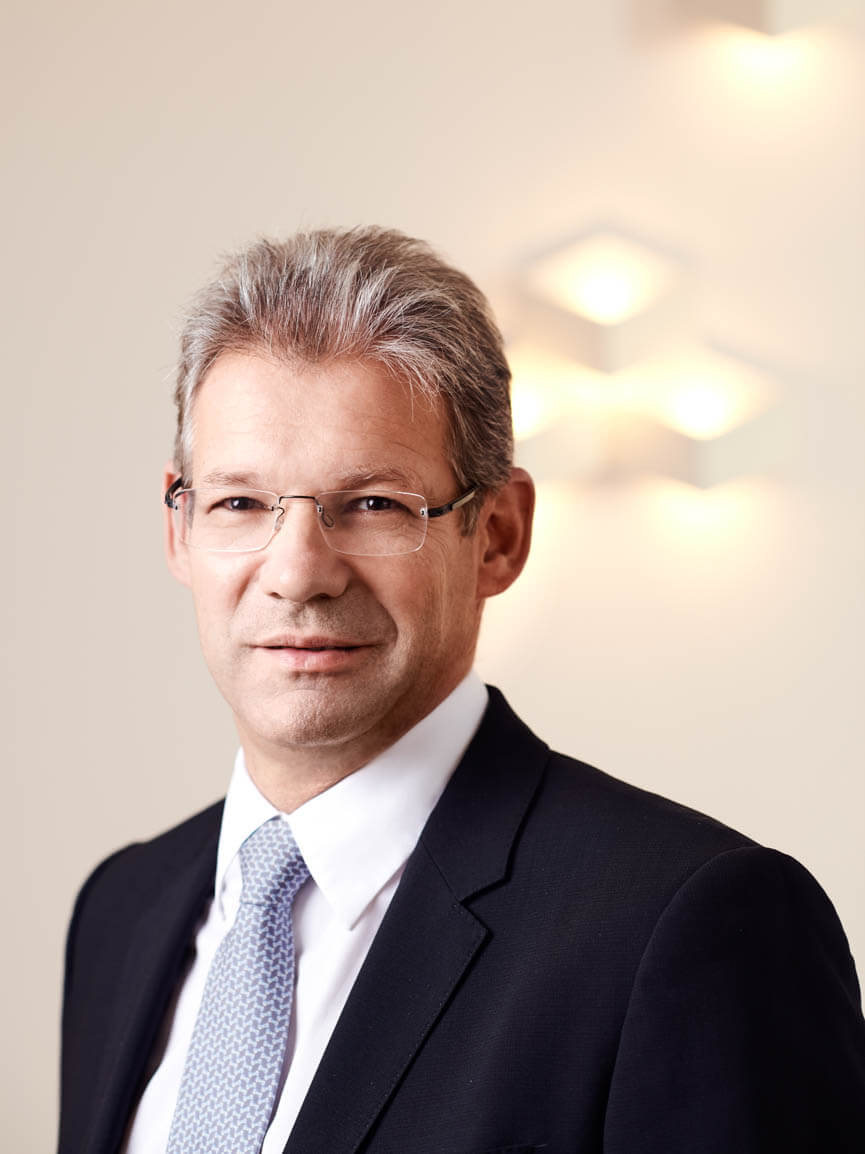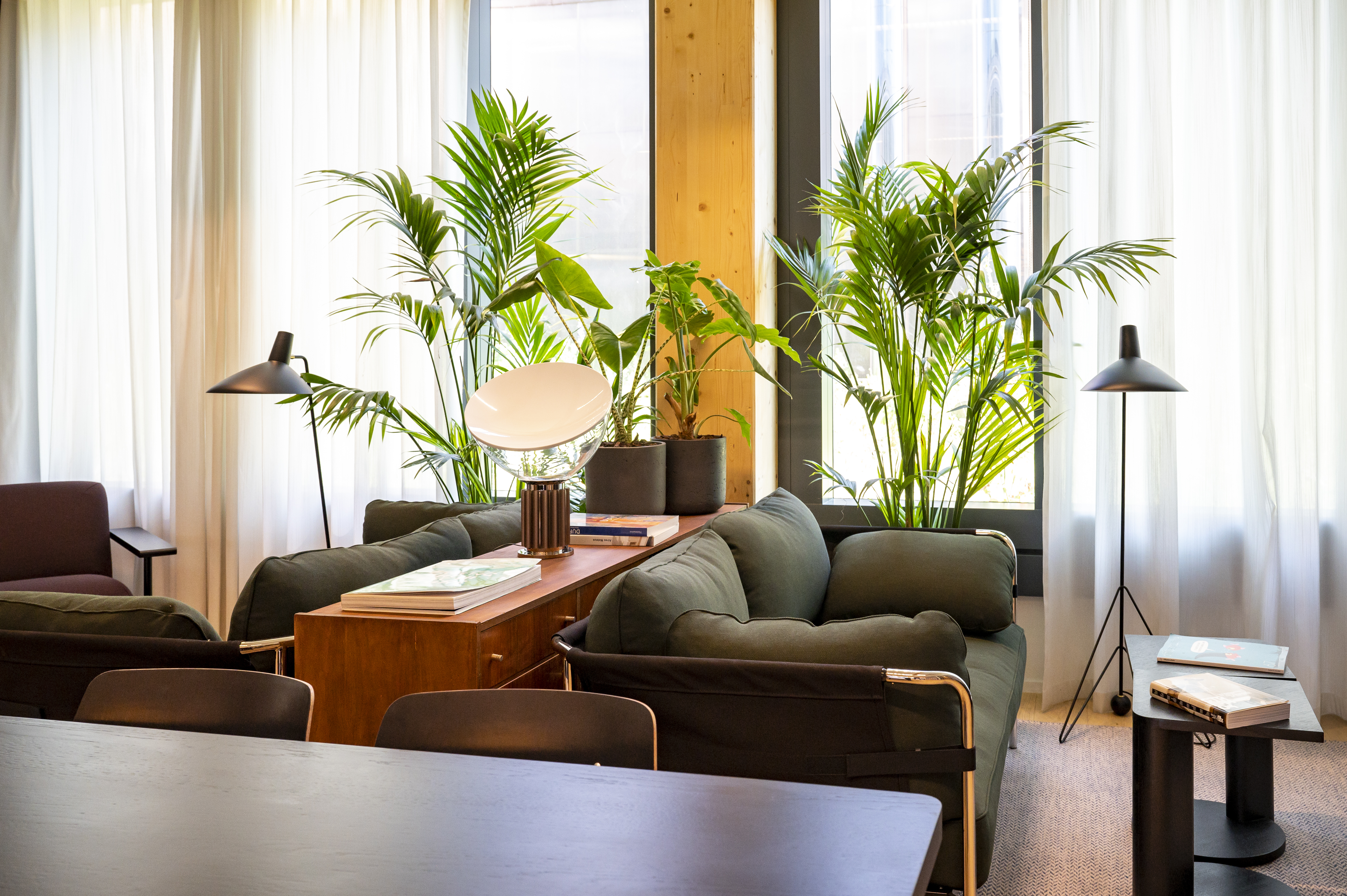A 15,700 m² eight-storey building comprising offices, a hotel, retail space and a rooftop terrace
Carbon trajectory: Covivio commits to a 40% reduction
An ambitious move for the full range of the group’s European activities
Sustainable development has been integral to Covivio’s DNA and strategy for more than 10 years and our CSR performance is widely praised by non-financial rating agencies. In response to ever-increasing environmental and climate concerns, we are adopting an ambitious carbon trajectory aiming to make Covivio a role model in low-carbon real estate.
Christophe Kullmann
Chief Executive Officer, Covivio

Covivio initiated a proactive approach towards reducing its carbon footprint. In 2018, an initial trajectory, compatible with the 2°C scenario of the Paris Agreement, was approved by the Science Based Targets initiative (SBTi ). By the end of 2020, Covivio had already reduced its emissions by 20% relative to 2010. Ahead of target, the company is accelerating its transition and has set its sights on a 40% reduction in greenhouse gas emissions by 2030 (compared with 34% previously).
This target, which encompasses scopes 1, 2 and 3, covers the full range of Covivio’s European activities (office, residential and hotel real estate) and spans the entire asset life cycle, from materials and construction to remodelling and operation.
Covivio is also targeting net zero carbon from 2030 for scopes 1 and 2.
This carbon trajectory is based on an appropriate action plan which covers all scopes: we have made a point of including all the countries where we operate and all of our products, taking into account both construction and materials. We will use all the levers we can to meet the challenges we have set ourselves.
Jean-Eric Fournier
Sustainable Development Director, Covivio
How can these targets be achieved?
Prioritise refurbishment and tackle urban sprawl: today, more than 50% of Covivio’s new projects involve the refurbishment of existing buildings, with the aim of “net zero land take”, or even reverse land take, to encourage biodiversity, sequester carbon and address the urban heat island effect (100% of new office development projects include green spaces). By combining the reuse of buildings with the circular economy, the use of sustainable materials and the installation of advanced systems for efficient building management, greenhouse gas emissions are reduced throughout the life cycle of the asset.
Committing to low-carbon construction on a European scale-: Covivio has commissioned the CSTB to produce LCA (Life Cycle Analysis) specifications. These will foster a low-carbon construction approach within the group, drawing on the French experience of BBCA-certified projects . The Thaïs building in Levallois-Perret was the first Covivio building to be certified back in 2017. Improving how we measure the carbon footprint of our operations is key to achieving the 1.5°C trajectory.
Providing new tools: two tools developed in 2020 in association with the CSTB allow us to monitor the actual performance of the portfolio relative to the 2°C trajectory. The first tool relates to construction and refurbishment, in the form of an “Express LCA” which measures the impact of the chosen construction materials and techniques on the carbon footprint of a development during the project’s upstream phase. The second tool covers the operational phase and calculates the financial and carbon impact of the energy efficiency improvements made to the portfolio.
Encouraging the use of renewable energy: Covivio installs the appropriate systems for its development projects (solar power, geothermal energy, etc.). By 2030, it plans to supply 100% of its directly managed commercial properties with renewable electricity (compared with 61% at end-2020), while raising awareness about the issue among its tenants for tenant areas.
With a responsible purchasing policy in place since 2011 for its suppliers and a strong partnership strategy with its tenants, Covivio is rallying all stakeholders to together make climate transition a success.
Lastly, by engaging in initiatives such as Alliance HQE-GBC , BBCA , SEKOYA and the hub for low-carbon specifiers (Hub des Prescripteurs bas carbone) , Covivio is developing its expertise in low-carbon construction and management to support its 10-year vision.
Practical applications to our projects
Stream Building – Paris 17ème:
A reversible project designed for a recyclable and sustainable building ecosystem
PCA-Stream architecture developed in association with Hines
A landmark building for environmental innovation:
Timber/concrete construction, which optimises its carbon footprint and supports the local value chain // 3,500 m3 of timber, capable of storing around 3,500 tonnes of CO2 // A lower energy cost than any other construction material over its life cycle: twice as less as concrete, five times less than cement and 130 times less than steel // 500 m² of energy-efficient rooftop solar panels, generating around 60 MWh of electricity per year // Green walls and terraces
Certification and accreditation:
BBCA, Effinergie+, HQE tertiaire Exceptionnel, BREEAM Excellent, CPEDD, E+C-
Noème – Bordeaux Lac:
Redevelopment of the former IBM headquarters as a 45,000 m² urban quarter
Mixed residential use divided into six blocks comprising different types of dwelling (700 housing units):
serviced retirement apartments, co-living apartments and family housing
More than 33,000 m² of landscaped areas:
60% of outdoor space and 40% of green space > reclaiming areas following the demolition of existing buildings and the planting of 240 trees
Improving biodiversity:
native plants, recycling of green waste, composting, beehives, etc.
A project with virtuous construction methods:
decarbonised concrete throughout the quarter, mixed timber construction, outside spaces, timber cladding, earthen construction, etc.
Reuse of demolition materials in future construction projects
Use of biosourced and geosourced materials:
external wood-fibre insulation, internal partition walls on the ground floor constructed from unfired clay bricks, timber-framed external walls, etc.
Materials with a short supply chain:
public footpaths in Tarn granite, esplanades in Bordeaux clay paving, retail plazas in Gascony sandstone, private terraces with wooden decking built using pine from the Landes forest

ContaCtS
Press Relations
Géraldine Lemoine
Tél : + 33 (0)1 58 97 51 00
Mail : geraldine.lemoine@covivio.fr
Louise-Marie Guinet
Tél : + 33 (0)1 43 26 73 56
Mail : covivio@wellcom.fr
Investor Relations
Vladimir Minot
Tél : + 33 (0)1 58 97 51 94
Mail : vladimir.minot@covivio.fr
